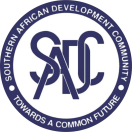Business environment and investment climate
Attracting investment to support an inclusive and sustainable growth is a core objective of SADC. In order to do so, SADC has deployed substantial efforts to create a favourable investment climate and a conducive business environment within the region.
SADC Protocol on Finance and Investment provides a framework for regional cooperation in terms of macroeconomic convergence, taxation, finance (including relations with Development Finance Institutions) and investment. The Secretariat is mandated to ensure close collaboration with Member States and all relevant institutions on investment and other related matters in the Region.
The Regional Action Programme on Investment (RAPI) aims at improving the investment climate, reducing risks, improving cost competitiveness and removing barriers to investment. It is made of 3 key components:
-
developing and harmonising the relevant policies and frameworks for attracting and promoting both domestic investment and FDI;
-
promoting investment in the region;
-
developing relevant platforms for sharing information relevant to investors.
SADC Regional Investment Policy Framework (IPF), developed in close collaboration with the OECD, is a key input to the RAPI. It provides a regional framework to improve the national investment policies and climate, in order to attract higher levels of quality investment that will enable to bridge the infrastructure gap and foster technology transfers, local skills development, gender empowerment, and environmental sustainability. Five policy action areas are identified for:
-
improving coherence and transparency of the investment environment;
-
ensuring market access and competition;
-
reinforcing security and protection of investor’s rights;
-
ensuring responsible and inclusive investments; and
-
promoting regional and international integration.
The regional IPF is complementary to advances in the objectives of several other regional Protocols and Strategies related to investment, industrialisation, gender, trade, and infrastructure. In order to domesticate the IPF, a number of MS have developed National Action Programmes on Investment (NAPI).
Complementary to SADC IPF, the SADC Business and Investment Promotion Strategy defines the approach followed to promote SADC investment opportunities and attract intra-SADC investment and FDI. The strategy is articulated around three core objectives:
-
complementing the national IPAs’ Investment Promotion Strategy;
-
presenting and promoting SADC as a FDI destination and;
-
creating and maintaining the visibility of SADC as a regional investment destination.
A number of tools and instruments are implemented in order to support improved and harmonised business and investment conditions within the region, notably:
-
The Region has developed a model Double Tax Avoidance Agreement (DTAA) to encourage investment
-
Measures have been adopted to combat money laundering and support tax information sharing, and to enhance the SADC Tax regime in support of a conducive investment and business environment. The region is supporting common approaches and policies to the application and treatment of tax incentives and negotiation of tax agreements. An Investment regimes database is being developed to provide harmonised information on investment policies, incentives and practices in MS. The database complements the information provided by the IPAs of the Member States.
-
Efforts are deployed to enhance integration of financial markets in the SADC region. In particular, support is provided for the development of financial markets and of policies and strategies to address risks to financial stability at regional and national levels.
-
SADC Real Time Gross Settlement System (RTGS), an electronic cross-border funds transfer system, facilitates settlement of funds within the region, in real time, and hereby lowers the transaction costs by removing the need for corresponding banks.
-
Ongoing efforts aim to improve the free movement of goods, services, and skills. In particular, SADC Simplified Trade Regime Framework and SADC Regional Customs Transit Guarantee Regulations aim at facilitating intra and extra SADC trade, while SADC E-Certificate of Origin (eCoO) Framework, implemented as a pilot phase in 6 MS, aims at facilitating the application of the Certificate of Origin electronically. In terms of Technical Barriers to Trade and Sanitary and Phytosanitary Measures, SADC works to enhance the quality and competitiveness of goods and services produced by the region while ensuring that the goods and services imported meet the international standards.
-
At sector level, harmonised policies, strategies, and initiatives in support of cross-border infrastructure and services are developed in energy (including renewables), ICT, water and transport while efforts are deployed for enhanced policy, regulatory and business environment at national and regional levels for the development and sustainable operation of regional value chains.
Over the years, Member States have deployed efforts for aligning their policies and regulations with the regional framework and for improving the business environment in line with the World Bank Doing Business indicators1. It is noteworthy that Mauritius is ranked 13th in the World Bank Ease of Doing Business 2021, over 190 economies assessed. Achievements have been registered in particular in reducing the time and cost of starting a business, dealing with construction permits, registering properties, by simplifying the procedures and accelerating the treatment of files.
A number of countries have set up electronic one-stop shops enabling investors to apply to the required permits and authorizations online. Finally, in order to attract investment in specific sectors and increase exports in particular, a number of countries have develop special economic zones, backed either by physical infrastructure or a status, and providing tax incentives.

